Juggling and free software - the unexpected link
Par a3_nm, dimanche 1 octobre 2006 à 00:13 :: Pensées :: #117
The parallel I am about to draw in this post occurred to me as I watched a real show, in Poland, Krakow, during a one-week school exchange program (but you don't really need to know). The stay was quite different from my expectations ; I was indeed quite surprised when I understood that, despite our early departure from Strasbourg at 5h30 a.m., everybody was enthusiastic about going out, chatting and drinking impressive quantities of alcoholic beverages this same evening. Therefore I was tired, and, well, impressed, as I watched this show, in which one of my comrades was acting (Gregor, if you're reading this...) - and then I had this idea, this unclear analogy that I desperately tried to explain to my Polish trade partner (yes, I know, you have to be quite mad to have such strange ideas). I would like to stress that this show really took place, and that I tried to depict it in the most accurate way possible. However, I am not thinking about any free software project in particular...
It all begins in a club where we were, and where (...) Gregor left us, saying that he was looking for jugglers. I did not understand him at once. Yes, I knew that he had brought his juggling staff (a long aluminium tube with a wick at both ends and a handle improvised from of gaffer tape), and I knew that he loved to juggle and play with fire... I thought that he was going to show his skills in a private demo, but, as we were to understand when we followed him, it was more than that.
And thus, developing free software often begins thanks to guys who have a genuine passion (yes, I know, there are also corporations, but I am not talking about that here). Thus, it is often someone who loves what he is doing, who is daring, spontaneous, and also somewhat crazy, that is starting this kind of projects...
We followed him, and found him talking with another juggler on the Marketplace. The other came from Nantes and spoke perfectly French. Near them, other Polish jugglers. And then, from this, after a little chat, something happened. The staffs are lit, the fire breather starts it all. Let the show begin!
In the same way, free software projects are often born from several of these geeks talking together and having, together, a good idea. Suddenly, they appear, somewhere on the World Wide Web. You cannot know it then, but some of them are to trigger an accidental revolution.
Progressively, people gather around the artists. Those who pass by, wandering or going somewhere at a slow pace, seem to be attracted gravitationally by this abnormality. The jugglers continue, their choreography is more and more beautiful; they have an audience.
And progressively, the users of the software are more and more numerous. They bring their friends with them, and the number of hits on the project's website grow almost at an exponential rate. The project continues with more intensity ; he now has a community.
Something else happens. A djembe, which had been heard alone, now gives a musical background for the jugglers. In the end, they both form a single show, better than the sum of the two taken together. One of my comrades takes out his guitar and improvises some chords. Music now rhythms the movements of the jugglers, of the fire dancers' complex choreography. The show turns into a kind of ecosystem, the number of spectators continues to increase...
This phenomenon is the core of free software : the former passive users turn into active members of the community. This software, created by a few people, around which people with variable technical skills had gathered, is now a collective work. It begins by suggestions and bug reports from the users, and continues by direct contribution to the codebase of the program they are using ; free software licences are only a way to put this together as far as law is concerned. The threshold between user and creator is blurred, and several intermediaries appear between the extremes.
The necessary call for donations now takes place, following the border of the crowd that is watching the show. It works through voluntary contribution. Where will this money go ? We do not know, and I already feel that Gregor, who nevertheless deserves to be payed, will not get much, if anything. Anyway, he only wanted to practise, and was not interested in money...
The community's generosity is still the main way for a free software project to survive in an economic point of view. The more people on the website, the more you have to pay to host it. And there too, those who contributed to the project probably will not get any tangible pay - this question of sharing incomes between contributors is still an open debate in many projects. Anyway, here too, most people are not really driven by a thirst for money - but are doing it for skills, fame, and fun...
Sadly, time passes. The staffs, the bolas go out. The jugglers take a break, and the impatient crowd disappears. It is late, and Gregor has to leave. I leave too, knowing that the show will not continue for long. The ghastly ghost of normality has won over this singularity which had appeared under my eyes. Only photos and memories remain - this page being one of the places where the show survives...
However, free software is neither affected by the days nor by the nights. The crowd of the users can grow without bounds, and the contributors are numerous enough to run the show continuously. In a 1000-dimensional web space, there is no critical mass. And when time, after a few months, years or decades, will have destroyed it, when the last one will have left, our project will leave an eternal mark on the Internet, and all the work which would have been done will still be available somewhere, under a free software license allowing others to reuse it in another project, when the time will come...
The torch of everlasting information passes between creators, and the show goes on...
Yeah, I know, that sounds lame...
 Version française de ce billet
Version française de ce billet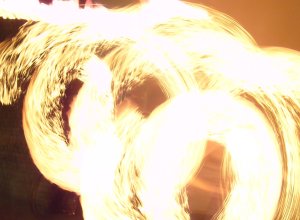
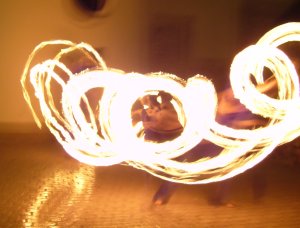
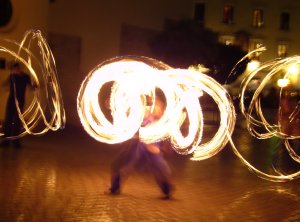
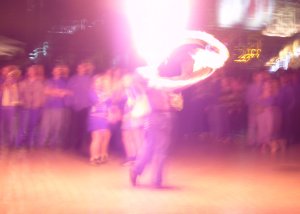
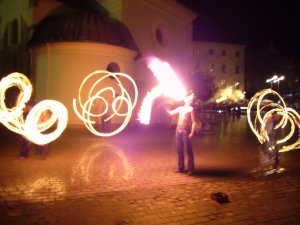
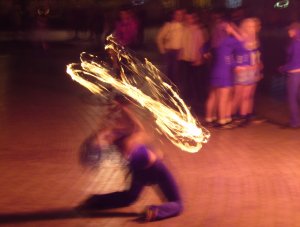


Commentaires
Aucun commentaire pour le moment.
Ajouter un commentaire
Les commentaires pour ce billet sont fermés.